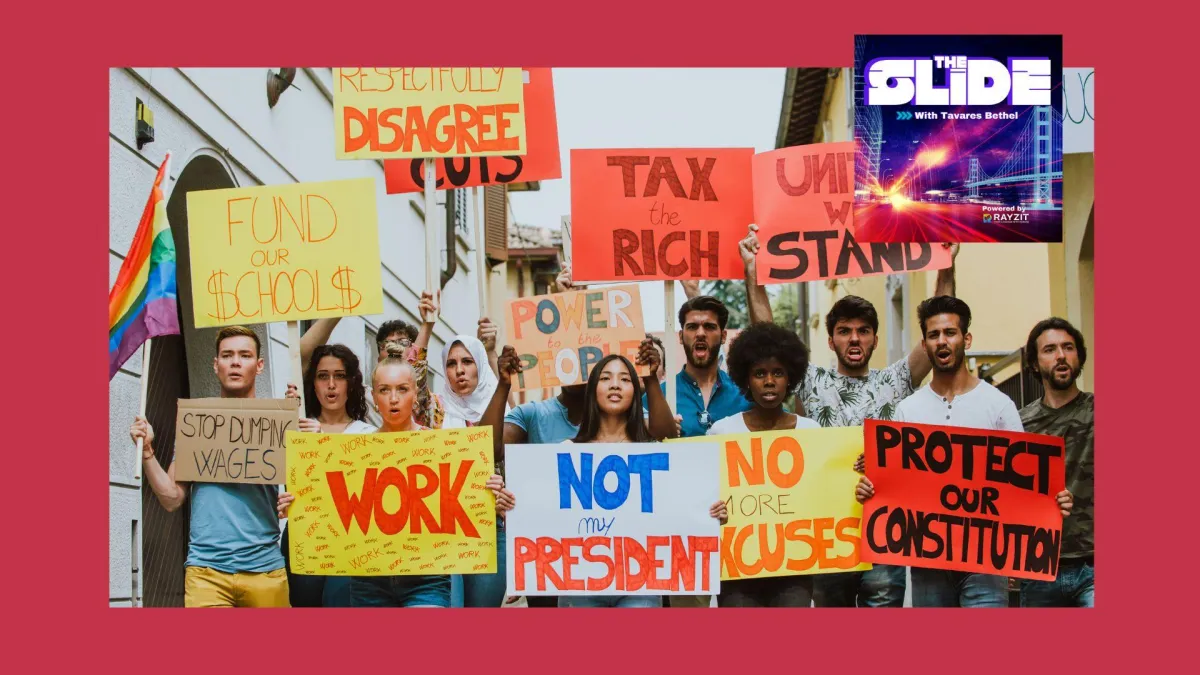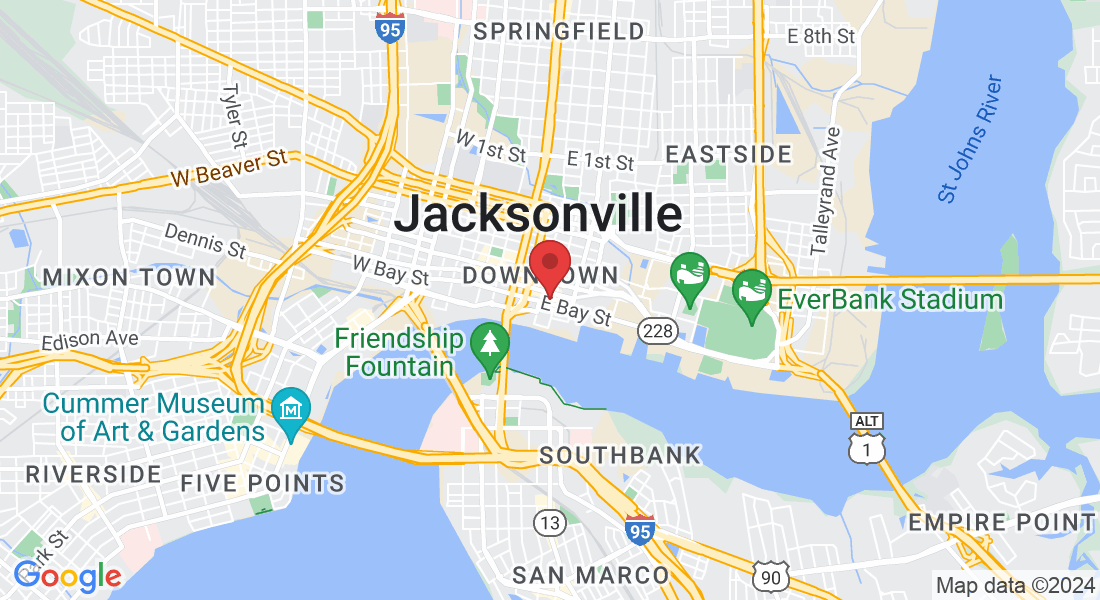— PORTFOLIO
Featured WORK
Celebrate Creativity: Showcasing our Client Work
At Mix Theory Studios, we take immense pride in showcasing the exceptional work we've done with our clients. From reimagining music albums to producing national Ad campaigns featured during the World Series, our portfolio reflects our commitment to quality and creativity. Each project is a testament to our collaborative approach and dedication to bringing our clients' visions to life. Join us in celebrating and envisioning your own project's potential.
Client Works

Strengthening Communities from the Trenches
Why Grassroots Efforts Matter

The conversation between host Tavares Bethel and guest Anthony Brown, co-founder of the Red Alliance of Justice in Jacksonville, Florida, highlights the critical role of grassroots activism in local communities.
While major candidate elections often dominate headlines and attract significant financial resources, it's the small towns and suburbs that hold the true potential for direct impact on citizens' lives. However, realizing this potential requires widespread community involvement and a collective commitment to education and civic engagement.
Watch the video
Episode 1: Cash the Check with Anthony Brown
This inaugural episode of "The Slide Podcast explores the importance of grassroots efforts, underscoring the idea that real change begins at the local level. While national politics may seem far removed, it's the decisions made in local communities that have the most immediate and tangible effects on our daily lives.
This episode contains explicit content. Viewer discretion is advised. The intention of The Slide podcast is not to offend but to provide real conversations into topics affecting communities within the United States. The opinions contained within this episode are solely those who have expressed them. Proceed only if you are comfortable with potentially sensitive topics.
See Time Stamps for this video at the end of this article.
The Power of Local Communities
Local communities possess a unique and profound power to enact change that directly improves the lives of their residents. While national headlines often focus on broader political battles, it's within our neighborhoods, towns, and cities that the most immediate and impactful decisions are made. When individuals come together to address local issues, they can create vibrant, resilient communities where everyone's voice is heard, and everyone's needs are met.
The Role of Racial Dynamics and Political Representation
In a candid discussion about political alliances, Brown analyzes the historical allegiance of the Black community to the Democratic Party. He questions the tangible benefits of such loyalty and considers the need to weigh options critically and strategically. For Brown, reparation for Black Americans is a key issue that would sway his vote between candidates in the upcoming election.
"If Donald Trump says that he's going to give Black Americans reparations, I vote for Donald Trump right now. If Biden says he's going to give us reparations, I vote for him now," Brown declares, focusing on the principle of results over party loyalty.
While national elections often garner more attention, Brown argues that local elections are where citizens can make the most significant impact. He encourages community members to critically assess candidates and vote for those who will genuinely advocate for their needs.
The future of our political destiny hinges on active participation, Brown asserts, emphasizing the importance of local elections in shaping the community's future.
Brown outlines a structured approach for effective civic participation, from education to local and state-level political engagement. He advocates for grooming and financially supporting credible community representatives who can genuinely advocate for collective needs. This approach ensures that the community's voice is heard and that its interests are represented in local government.
Learning More About Candidates
In advance of this year's Presidential election, voters are encouraged to educate themselves on the candidates and the underlying policies that they represent. Opinions, misinformation and disinformation are rampant on social media, and the divides between the political parties seem ever more vast.
But elections are not just about the top of the ticket and the Presidential candidates. We encourage voters to take measures to educate themselves and better understand the poltiical landscape impacting the country and our communities. Here are a few steps that individuals can take to educate themselves on candidates and their policies in advance of the upcoming election in November:
Start by visiting candidate's official websites and social media profiles, where they usually outline their platforms and priorities.
Read up on their voting records or past actions if they've previously held office; this can often be found on government websites or through non-partisan organizations like Ballotpedia.
Check out reputable news sources and fact-checking sites for unbiased analysis of their positions and claims. This resource by Ad Fontes Media provides an interactive chart to identify the Media Bias for different media outlets and podcasts.
Lastly, attend or watch debates, town halls, or interviews to see how they address key issues and interact with the public.
By taking these steps, you'll be better equipped to make an informed decision at the voting booth this November.
Meet Anthony Brown

Our guest, Mr. Anthony Brown, is a dedicated community activist in Jacksonville. Brown's extensive involvement with organizations like the NAACP, the Urban League, and the Red Alliance for Justice has been instrumental in addressing local issues like redlining and gentrification. His work serves as a powerful example of how grassroots activism can lead to meaningful change.
Brown is a seasoned supply chain and logistics professional, currently serving as a Supply Chain Operations Manager at Highmark Solutions. He is a U.S. Army Reservist and holds a Bachelor of Arts in Communications with a Minor in History from Charleston Southern University.
Red Alliance For Justice: Actions and Town Halls
Brown reflects on the passage of significant local legislation, such as the Redlining Resolution and the Durkeeville Bill. These victories highlight the power of grassroots movements in shaping policies that directly benefit local communities. Brown also emphasizes the importance of ongoing efforts, such as town hall meetings, to maintain momentum and ensure continued community engagement.
Join the next town hall meeting sponsored by the Red Alliance for Justice on the third Thursday of each month held at 1405 W. State Street in Jacksonville Florida.
Episode Notes
In this episode of The Slide Podcast with Tavares Bethel, guest Anthony Brown, a community activist from Jacksonville, Florida, discusses the significance of community strength and political strategy. The conversation covers the historical political positioning of the Black community, present initiatives, and future strategies.
Anthony, the Co-Founder of Red Alliance for Justice, emphasizes the importance of civic engagement through town hall meetings and strategic voting. He also touches on the necessity of financial investment in political representation and the concept of collective power. Additionally, Brown shares his personal experiences and stresses the importance of education and institution-building to effectuate change.
00:00 Introduction to Community Strength
00:47 Guest Introduction: Anthony Brown
01:16 Anthony Brown's Advocacy Journey
02:44 The Importance of Civic Engagement
04:13 Political Evolution of the Black Community
06:31 Reparations Debate: Trump vs. Biden
08:06 Reparations Package: What It Should Look Like
11:57 Strategic Voting and Political Representation
21:01 Immigration and Political Loyalty
23:20 The Complexity of Voting Decisions
24:11 Military Perspective on Political Choices
26:32 Influence of Wealth and Power in Politics
28:48 The Role of Community and Influence
31:00 Personal Responsibility and Systemic Challenges
32:52 Historical Context and Modern Parallels
34:48 The Need for Strategic Change
36:30 Addressing Racial Dynamics and Unity
38:38 The Importance of Education and New Narratives
40:47 Outro and Call to Action

Strengthening Communities from the Trenches
Why Grassroots Efforts Matter

The conversation between host Tavares Bethel and guest Anthony Brown, co-founder of the Red Alliance of Justice in Jacksonville, Florida, highlights the critical role of grassroots activism in local communities.
While major candidate elections often dominate headlines and attract significant financial resources, it's the small towns and suburbs that hold the true potential for direct impact on citizens' lives. However, realizing this potential requires widespread community involvement and a collective commitment to education and civic engagement.
Watch the video
Episode 1: Cash the Check with Anthony Brown
This inaugural episode of "The Slide Podcast explores the importance of grassroots efforts, underscoring the idea that real change begins at the local level. While national politics may seem far removed, it's the decisions made in local communities that have the most immediate and tangible effects on our daily lives.
This episode contains explicit content. Viewer discretion is advised. The intention of The Slide podcast is not to offend but to provide real conversations into topics affecting communities within the United States. The opinions contained within this episode are solely those who have expressed them. Proceed only if you are comfortable with potentially sensitive topics.
See Time Stamps for this video at the end of this article.
The Power of Local Communities
Local communities possess a unique and profound power to enact change that directly improves the lives of their residents. While national headlines often focus on broader political battles, it's within our neighborhoods, towns, and cities that the most immediate and impactful decisions are made. When individuals come together to address local issues, they can create vibrant, resilient communities where everyone's voice is heard, and everyone's needs are met.
The Role of Racial Dynamics and Political Representation
In a candid discussion about political alliances, Brown analyzes the historical allegiance of the Black community to the Democratic Party. He questions the tangible benefits of such loyalty and considers the need to weigh options critically and strategically. For Brown, reparation for Black Americans is a key issue that would sway his vote between candidates in the upcoming election.
"If Donald Trump says that he's going to give Black Americans reparations, I vote for Donald Trump right now. If Biden says he's going to give us reparations, I vote for him now," Brown declares, focusing on the principle of results over party loyalty.
While national elections often garner more attention, Brown argues that local elections are where citizens can make the most significant impact. He encourages community members to critically assess candidates and vote for those who will genuinely advocate for their needs.
The future of our political destiny hinges on active participation, Brown asserts, emphasizing the importance of local elections in shaping the community's future.
Brown outlines a structured approach for effective civic participation, from education to local and state-level political engagement. He advocates for grooming and financially supporting credible community representatives who can genuinely advocate for collective needs. This approach ensures that the community's voice is heard and that its interests are represented in local government.
Learning More About Candidates
In advance of this year's Presidential election, voters are encouraged to educate themselves on the candidates and the underlying policies that they represent. Opinions, misinformation and disinformation are rampant on social media, and the divides between the political parties seem ever more vast.
But elections are not just about the top of the ticket and the Presidential candidates. We encourage voters to take measures to educate themselves and better understand the poltiical landscape impacting the country and our communities. Here are a few steps that individuals can take to educate themselves on candidates and their policies in advance of the upcoming election in November:
Start by visiting candidate's official websites and social media profiles, where they usually outline their platforms and priorities.
Read up on their voting records or past actions if they've previously held office; this can often be found on government websites or through non-partisan organizations like Ballotpedia.
Check out reputable news sources and fact-checking sites for unbiased analysis of their positions and claims. This resource by Ad Fontes Media provides an interactive chart to identify the Media Bias for different media outlets and podcasts.
Lastly, attend or watch debates, town halls, or interviews to see how they address key issues and interact with the public.
By taking these steps, you'll be better equipped to make an informed decision at the voting booth this November.
Meet Anthony Brown

Our guest, Mr. Anthony Brown, is a dedicated community activist in Jacksonville. Brown's extensive involvement with organizations like the NAACP, the Urban League, and the Red Alliance for Justice has been instrumental in addressing local issues like redlining and gentrification. His work serves as a powerful example of how grassroots activism can lead to meaningful change.
Brown is a seasoned supply chain and logistics professional, currently serving as a Supply Chain Operations Manager at Highmark Solutions. He is a U.S. Army Reservist and holds a Bachelor of Arts in Communications with a Minor in History from Charleston Southern University.
Red Alliance For Justice: Actions and Town Halls
Brown reflects on the passage of significant local legislation, such as the Redlining Resolution and the Durkeeville Bill. These victories highlight the power of grassroots movements in shaping policies that directly benefit local communities. Brown also emphasizes the importance of ongoing efforts, such as town hall meetings, to maintain momentum and ensure continued community engagement.
Join the next town hall meeting sponsored by the Red Alliance for Justice on the third Thursday of each month held at 1405 W. State Street in Jacksonville Florida.
Episode Notes
In this episode of The Slide Podcast with Tavares Bethel, guest Anthony Brown, a community activist from Jacksonville, Florida, discusses the significance of community strength and political strategy. The conversation covers the historical political positioning of the Black community, present initiatives, and future strategies.
Anthony, the Co-Founder of Red Alliance for Justice, emphasizes the importance of civic engagement through town hall meetings and strategic voting. He also touches on the necessity of financial investment in political representation and the concept of collective power. Additionally, Brown shares his personal experiences and stresses the importance of education and institution-building to effectuate change.
00:00 Introduction to Community Strength
00:47 Guest Introduction: Anthony Brown
01:16 Anthony Brown's Advocacy Journey
02:44 The Importance of Civic Engagement
04:13 Political Evolution of the Black Community
06:31 Reparations Debate: Trump vs. Biden
08:06 Reparations Package: What It Should Look Like
11:57 Strategic Voting and Political Representation
21:01 Immigration and Political Loyalty
23:20 The Complexity of Voting Decisions
24:11 Military Perspective on Political Choices
26:32 Influence of Wealth and Power in Politics
28:48 The Role of Community and Influence
31:00 Personal Responsibility and Systemic Challenges
32:52 Historical Context and Modern Parallels
34:48 The Need for Strategic Change
36:30 Addressing Racial Dynamics and Unity
38:38 The Importance of Education and New Narratives
40:47 Outro and Call to Action
Ready to Scale? Connect with us.
About Mix Theory Studios
Mix Theory Studios is a content design studio and multimedia production company. We offer a variety of services that supports artists, creators and businesses to produce and distribute high quality audio and video content.
CONTACT
(904) 580-5763











